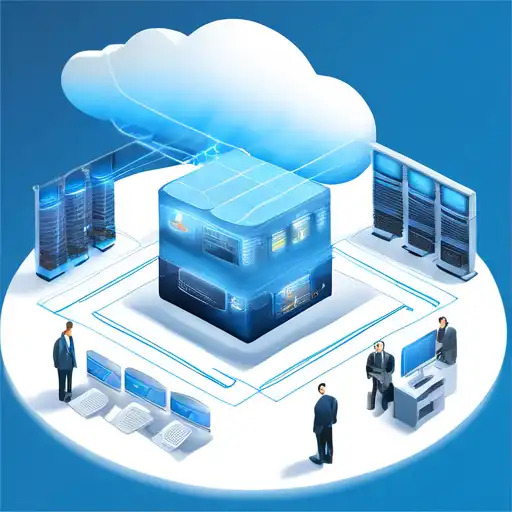What Are Hybrid Cloud Solutions?
Hybrid cloud solutions represent a computing environment that combines on-premises infrastructure, private cloud services, and public cloud services with orchestration between the platforms. This approach allows businesses to optimize their existing infrastructure while leveraging the scalability and cost-effectiveness of the cloud.
Benefits of Hybrid Cloud for Businesses
The hybrid cloud model offers numerous advantages for businesses looking to modernize their IT infrastructure. These include:
- Flexibility and Scalability: Businesses can scale resources up or down based on demand, ensuring they only pay for what they use.
- Cost Efficiency: By balancing workloads between private and public clouds, companies can reduce capital expenditures.
- Enhanced Security: Sensitive data can be kept on-premises or in a private cloud, while less critical operations can run on the public cloud.
- Disaster Recovery: Hybrid cloud solutions offer robust disaster recovery options, ensuring business continuity.
Key Considerations When Implementing Hybrid Cloud Solutions
Before transitioning to a hybrid cloud environment, businesses should consider several factors to ensure a smooth implementation:
- Compatibility: Ensure that your existing infrastructure is compatible with cloud services.
- Security Policies: Develop comprehensive security policies to protect data across all platforms.
- Cost Management: Monitor and manage cloud spending to avoid unexpected costs.
- Vendor Selection: Choose cloud providers that align with your business needs and goals.
How to Choose the Right Hybrid Cloud Provider
Selecting the right hybrid cloud provider is crucial for achieving your business objectives. Consider providers that offer:
- Seamless integration with your existing IT infrastructure.
- Advanced security features to protect your data.
- Flexible pricing models to fit your budget.
- Reliable customer support and service level agreements (SLAs).
Future Trends in Hybrid Cloud Computing
The future of hybrid cloud computing looks promising, with trends such as:
- Edge Computing: Bringing computation and data storage closer to the location where it is needed.
- AI and Machine Learning: Enhancing cloud services with intelligent automation and analytics.
- Multi-Cloud Strategies: Businesses are increasingly adopting multi-cloud approaches to avoid vendor lock-in.
Hybrid cloud solutions are transforming the way businesses operate, offering a balanced approach to IT infrastructure. By understanding the benefits and considerations, companies can make informed decisions to leverage hybrid cloud technologies effectively.
For more insights on optimizing your IT infrastructure, explore our guide on IT infrastructure optimization.
